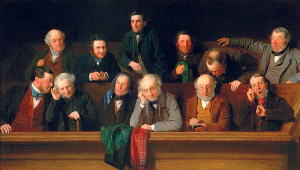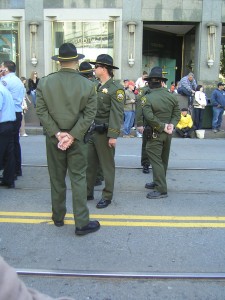Charlotte Criminal Lawyer Brad Smith answers the question: “Should I talk to the police?”
Police are an integral part of society; they keep the peace, catch criminals, and put their lives at risk to keep the general population safe. Since the police play such a large role in solving crimes and convicting criminals, it is not surprising that police officers are often called to testify during court proceedings. An issue arises with police testimony, however, when the officer testifying was not involved with the incident at all. Instead, that officer is offering an opinion, based off of his or her police experience, as to what happened or would have happened. This practice is controversial because someone without actual knowledge, or only investigative knowledge, of the incident is offering testimony that could sway a jury.
 Charlotte Criminal Lawyer Blog
Charlotte Criminal Lawyer Blog



